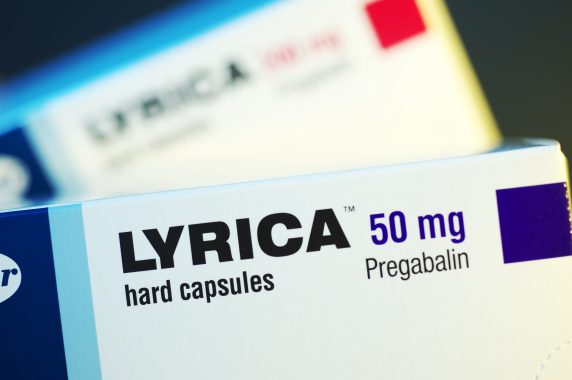Thousands of patients should be switched back to generic pregabalin for neuropathic pain next month, as new NHS England guidance reverses its 2015 directive requiring GPs to only prescribe the branded form Lyrica.
NHS England has written to GP practices to ask that they revert to ‘normal practice’ when dispensing pregabalin ‘for the treatment of any condition’ from 17 July.
This replaces March 2015 guidance to only prescribe Lyrica for neuropathic pain, following a patent dispute between drugs giant Pfizer’s subsidiary Warner-Lambert Company LLC and several suppliers of generic pharmaceuticals.
NHS England has been ‘considering’ a guidance change since October when a Pfizer appeal failed to overturn a High Court ruling against its patent for Lyrica in neuropathic pain.
Pfizer told Pulse that it had been granted permission to appeal the patent ruling again, this time in the UK Supreme Court, but this will not result in a further change to GP prescribing as the patent on medical use for pain expires on 16 July.
The GPC told Pulse there would be a workload burden for GPs in switching back but added that this ‘pales into insignificance’ compared to the cost to the NHS of being forced to pay for more expensive Lyrica.
Analysis of NHS prescribing data by Pulse last year estimated that prescribing Lyrica instead of generic pregabalin had cost the NHS an extra £54m between February and September 2015.
The letter from Dr Geddes to practices states its guidance from 2 March 2015 ‘is now withdrawn and replaced with the following guidance which the court has required NHS England to issue.‘
‘When dispensing pregabalin for the treatment of any condition, you should dispense in accordance with your normal practice.’
It also requires practices to undo changes to their electronic prescription system where GPs were previously prompted for neuropathic pain to ‘prescribe Lyrica (brand) due to patent protection’.
The letter says: ‘If you made such an amendment, we now ask you to reverse it to reflect the revised guidance above as from 17 July 2017.’
The previous guidance required GPs to urgently review patients, stipulating that the guidance should be implemented ‘immediately’ and ‘when reasonably possible’ for repeat prescriptions.
Clinical lead for the BMA’s GP committee Dr Andrew Green told Pulse that patients had lost out on the NHS funding that had instead gone to Pfizer.
He said: ‘It is true that there will be some work for practices to do in relation to this, but it pales into insignificance when looking at the bigger picture.’
‘Pfizer, by threatening legal action against pharmacists and doctors if they prescribed generically, have boosted their profits and denied patients effective treatments that otherwise could have been provided with that money.
‘They now have a moral duty to pay that money back to the NHS.’
Pfizer told Pulse that it recognised the lack of UK policy on secondary patents had ‘caused concern’ but it welcomed NHS England’s guidance which ‘brings clarity to prescribers and pharmacists’.
A spokesperson said: ‘[NHS England’s] updated guidance will come into force on 17th July 2017 and reflects the fact that the second medical use patent covering Lyrica for pain will have expired as of 16th July 2017.’
They added that ‘the Supreme Court of the United Kingdom has granted us permission to appeal the decision relating to the second medical use patent covering Lyrica for pain’, with the timetable for the appeal being determined by the Supreme Court.
An NHS England spokesperson told Pulse: ‘NHS England has received the final court order and has issued updated information in relation to the prescribing and dispensing of Pregabalin.
‘Where appropriate, Pregabalin can now be prescribed and dispensed for any licensed condition. The new guidance comes into effect from 17 July 2017’.
The pregabalin dispute
Pfizer’s main patent for Lyrica in the UK had expired in July 2014, but it still held a ‘second medical use’ patent for the drug when it is prescribed for the indication of neuropathic pain.
An interim legal judgment in favour of Pfizer in early 2015 saw NHS England issue guidance that forced GPs to switch thousands of patients’ prescriptions for generic pregabalin to Lyrica.
But a High Court judgement in September 2015 threw out the patent claim saying the patent claims for pregabalin’s use in treatment of neuropathic pain, idiopathic pain or fibromyalgia ‘are invalid on the ground of insufficiency’.
The judge Justice Richard Arnold also said Pfizer had made ‘groundless threats’ to pharmacists warning them not to dispense the generic drug.
Pulse revealed pharmacists were told to refuse GP prescriptions of generic pregabalin, and some pharmacies even triggered a significant event alert every time a GP prescribed so as not to fall foul of Pfizer’s ‘threats’.
Pulse October survey
Take our July 2025 survey to potentially win £1.000 worth of tokens

Visit Pulse Reference for details on 140 symptoms, including easily searchable symptoms and categories, offering you a free platform to check symptoms and receive potential diagnoses during consultations.












